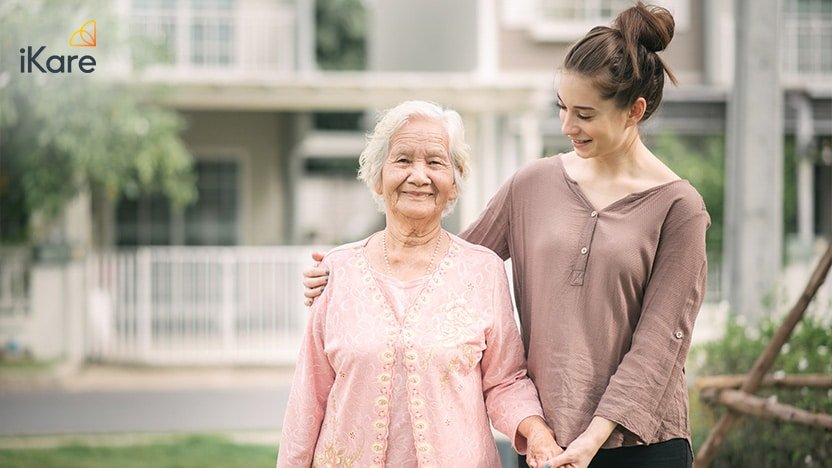
Caring for your elderly parents is more than just meeting their practical needs but also about effective communication to help them feel reassured and taken care of. However, this vital aspect can often be overlooked, leading to misunderstandings and unmet needs. That’s why iKare, a provider of home care services in Singapore, has put together these strategies to enhance communication between you and your elderly parents, ultimately fostering an environment built on understanding and compassion. Continue reading to learn more.
Starting the conversation

Initiating discussions about care options can be daunting, but it’s a crucial step towards ensuring the well-being of loved ones and providing the best possible care for your elderly parents. Begin by creating a comfortable environment conducive to open dialogue. Whether it’s a quiet afternoon at home or a private moment during breakfast, broaching the topic in a loving and supportive atmosphere while they’re relaxed and at peace can make the conversation easier for them. Keep in mind to approach the subject with sensitivity, acknowledging the emotional weight it may carry for all parties.
Additionally, help your parents recognise that the main objective is to discover solutions that will prioritise their comfort and well-being, and that their wants and preferences will take precedence. This lays the foundation for meaningful discussions that can lead to informed and mutually beneficial care decisions.
Listening with empathy

Empathetic listening is crucial for fostering effective communication between you and your elderly parents. It goes beyond simply acknowledging words; it involves paying close attention to both their verbal and non-verbal cues. By offering your undivided attention and demonstrating genuine interest in their concerns and preferences, you create a safe and welcoming environment where your senior family members feel validated, nurturing a more open and communicative relationship.
Resolving conflict
Conflict resolution is an inevitable aspect of caregiver-parent dynamics, particularly when navigating complex issues such as health care decisions. When conflicts arise, it’s essential for you to approach them with patience, empathy, and a willingness to find mutually agreeable solutions. Constructive communication techniques such as using “I” statements to express feelings and practising empathy can also help with understanding each other’s perspectives. Through open and honest discussions, conflicts can be resolved while preserving mutual respect and understanding within the relationship.
Respecting autonomy and dignity
While caregivers often have their loved ones’ best interests at heart, it’s crucial to also respect their autonomy and independence. Recognise that your elderly parents may have their own preferences and priorities when it comes to care options, particularly within the context of receiving homecare. Involve them in decision-making processes, giving them the space to voice their opinions and concerns regarding their needs. Remember to also offer support and guidance without imposing your own agenda, and honour their right to make choices that align with their values and desires. Doing so will contribute to enhancing their overall well-being.
Learn more: Understanding the Reasons Why Dementia Patients May Refuse Care | iKare
Communication in caregiver-parent relationships is essential for optimal support. As we work towards providing the best possible care for our loved ones, let us commit to cultivating strong, open conversations that strengthen bonds and contribute to their overall sense of comfort and security.
Searching for reliable caregiver services in Singapore? At iKare, our team is dedicated to delivering compassionate and professional care tailored to the unique needs of your family. Reach out today and learn more about the range of services offered.

